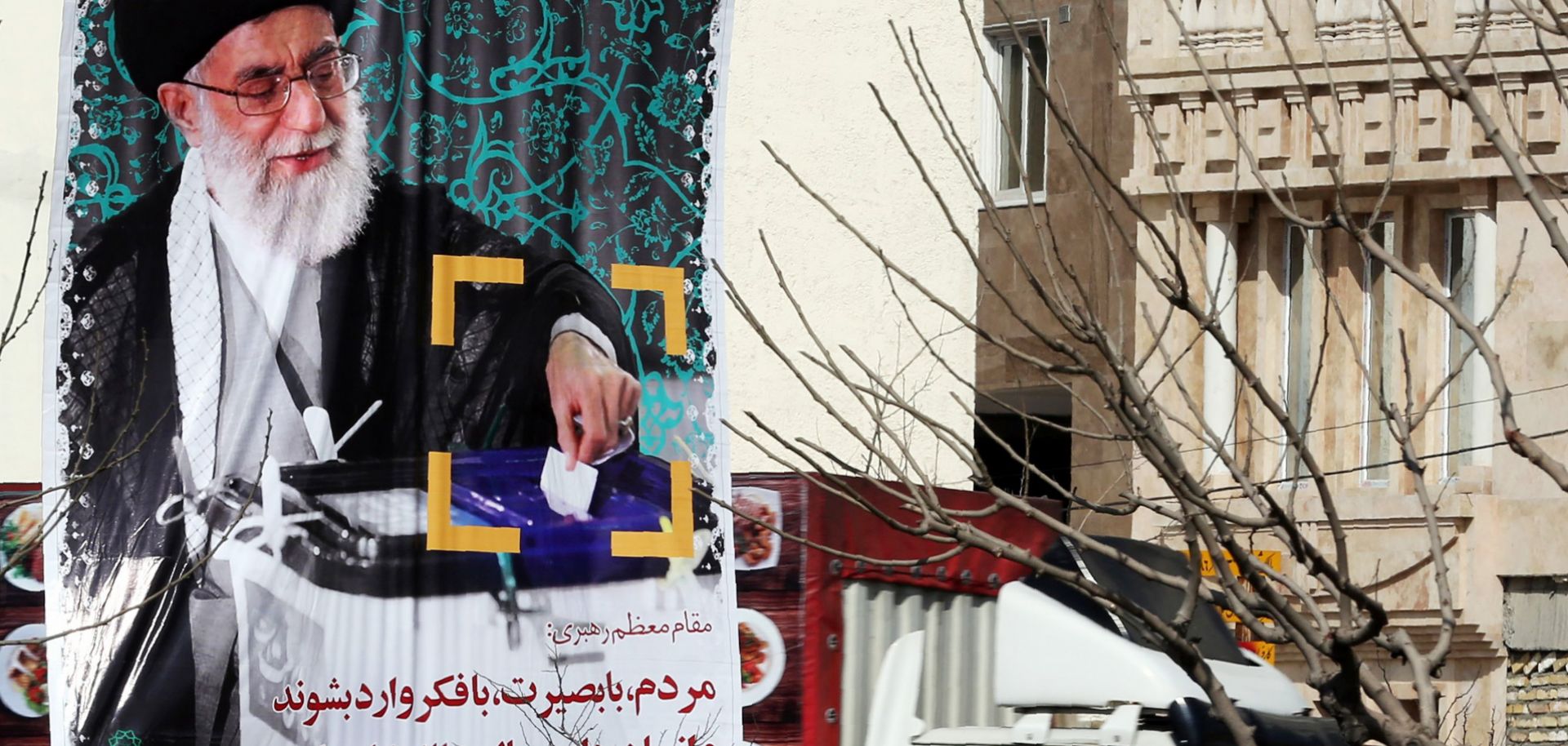ASSESSMENTS
In Iran, Political Change at a Measured Pace
Feb 24, 2016 | 10:36 GMT

In Tehran, a banner encouraging voter participation depicts Iranian Supreme Leader Ayatollah Ali Khamenei. Moderate, reformist candidates have a chance to perform well in Iran's parliamentary elections Feb. 26.
(ATTA KENARE/AFP/Getty Images)
Forecast Highlights
- In elections for the Iranian legislature and its powerful Assembly of Experts on Feb. 26, the country's conservative leadership will prevent any major moves toward reform.
- Although most reformist candidates are barred from the race, some remaining candidates are adapting their conservative message to appeal to reform-oriented voters.
- The success of these moderate candidates could nudge the Iranian government toward less hard-line policies.
Subscribe Now
SubscribeAlready have an account?
